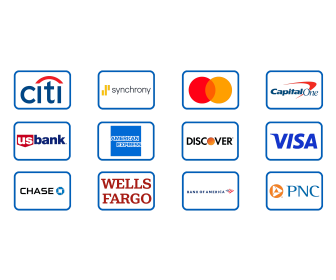How to Build Credit from Scratch
Building credit from scratch can feel like a catch-22 — you need credit to get approved for credit. But with the right first steps, you can create a strong credit history from nothing. It’s about patience, consistency, and understanding how credit scoring really works. Here’s a clear roadmap to start building credit safely and effectively.
1. Understand What Credit Really Means
Credit is your financial reputation. Lenders use your credit report to see how reliably you borrow and repay money. When you start with no history, lenders can’t assess your reliability — that’s why you have to prove it with small, controlled credit activity over time.
- Credit report: A record of your accounts and payment history.
- Credit score: A number (300–850) representing your overall creditworthiness.
- Goal: Build a record that shows consistent, responsible use.
2. Start with a Secured Credit Card
A secured credit card is one of the easiest ways to begin building credit. You put down a refundable deposit — typically $200–$500 — and use the card like any regular credit card. The issuer reports your payments to the credit bureaus, which starts your credit history.
- Keep balances low: Aim to use under 30% of your limit (under 10% is ideal).
- Pay on time: Each payment adds positive history to your report.
- Upgrade later: After 6–12 months of responsible use, many issuers let you move to an unsecured card and refund your deposit.
3. Become an Authorized User
If someone you trust (like a parent or partner) has a long, well-managed credit card account, ask to become an authorized user. Their positive history will start appearing on your credit report, giving you a quick boost without needing your own approval.
- Choose carefully: The account should have low utilization and no late payments.
- No deposit required: You benefit from their history immediately.
- Use lightly: Keep spending minimal to avoid risk for the primary cardholder.
4. Try a Credit Builder Loan
Credit builder loans are small installment loans designed for beginners. You pay into a locked savings account monthly, and once it’s paid off, you get your money back — plus a full record of on-time payments on your credit report.
- Low-risk: You’re effectively paying yourself to build credit.
- Reports monthly: Payment history helps establish your score.
- Offered by: Community banks, credit unions, and online fintech lenders.
5. Pay Every Bill on Time
Even one missed or late payment can set you back months. On-time payment history makes up about 35% of your credit score, so automation is your best friend.
- Set autopay: Schedule full or minimum payments automatically.
- Use reminders: Set phone or email alerts before due dates.
- Include utilities: Some services report rent or utility payments to credit bureaus for a small fee — helpful if you have no loans yet.
6. Keep Balances Low and Accounts Open
Your credit utilization ratio — the percentage of available credit you’re using — affects your score heavily. Keep it low by paying off balances early and avoiding unnecessary card closures. Longer account history also helps boost your score.
- Pay early: Payments before the statement date reduce reported balances.
- Keep your first card open: The age of your oldest account strengthens your profile.
- Don’t apply too often: Each new inquiry can cause a small, temporary dip in your score.
7. Track Your Progress Regularly
Free credit monitoring tools and apps let you see your score grow month by month. Tracking progress keeps you motivated and helps you catch errors early — credit report mistakes are more common than most people think.
- Check your reports: Use AnnualCreditReport.com for free reports from all bureaus.
- Dispute inaccuracies: Wrong information can lower your score unfairly.
- Celebrate small wins: A 10–20 point increase means you’re on the right track.
Expert insight: Building credit from scratch takes time — but every on-time payment is a building block. Think of your score as a reflection of consistency, not speed. Six months of perfect habits can make a lifetime of difference.
Final Thoughts
Building credit from scratch is about starting small, staying consistent, and proving reliability. Open one starter account, pay on time, keep balances low, and watch your score grow. With steady habits, you’ll have access to better cards, lower rates, and stronger financial opportunities in less time than you think.
Not financial advice. Credit products, eligibility, and reporting rules vary by country and issuer. Always confirm card terms and loan details before applying or making payments.



